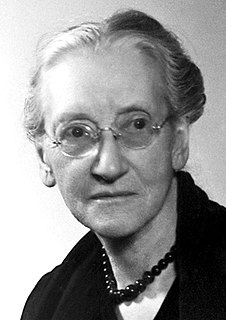A Quote by Umberto Eco
The Enlightenment, the Age of Reason, is seen as the beginning of modern depravity.
Quote Topics
Related Quotes
In Europe, the Enlightenment of the 18th century was seen as a battle against the desire of the Church to limit intellectual freedom, a battle against the Inquisition, a battle against religious censorship. And the victory of the Enlightenment in Europe was seen as pushing religion away from the center of power. In America, at the same time, the Enlightenment meant coming to a country where people were not going to persecute you by reason of your religion. So it meant a liberation into religion. In Europe, it was liberation out of religion.
Further, if Spirit has any meaning at all, then it must be eternal, or without beginning or end. If Spirit had a beginning in time, then it would be strictly temporal, it would not be timeless and eternal. And this means, as regards your own awareness, that you cannot become enlightened. You cannot attain enlightenment. If you could attain enlightenment, then that state would have a beginning in time, and so it would not be true enlightenment.
A purpose derived from a false premise - that a deity has ordained submission to his will - cannot merit respect. The pursuit of Enlightenment-era goals - solving our world's problems through rational discourse, rather than through religion and tradition - provides ample grounds for a purposive existence. It is not for nothing that the Enlightenment, when atheism truly began to take hold, was also known as the Age of Reason.
Faith and feelings are the warm marrow of evil. Unlike reason, faith and feelings provide no boundary to limit any delusion, any whim. They are virulent poison, giving the numbing illusion of moral sanction to every depravity ever hatched. Faith and feelings are the darkness to reason’s light. Reason is the very substance of truth itself. The glory that is life is wholly embraced through reason. In rejecting it, in rejecting reason, one embraces death.
The Wheel of Time turns, and Ages come and pass, leaving memories that become legend. Legend fades to myth, and even myth is long forgotten when the Age that gave it birth comes again. In one Age, called the Third Age by some, an Age yet to come, an Age long past, a wind rose in the Mountains of Mist. The wind was not the beginning. There are neither beginnings nor endings to the turning of the Wheel of Time. But it was a beginning.






































